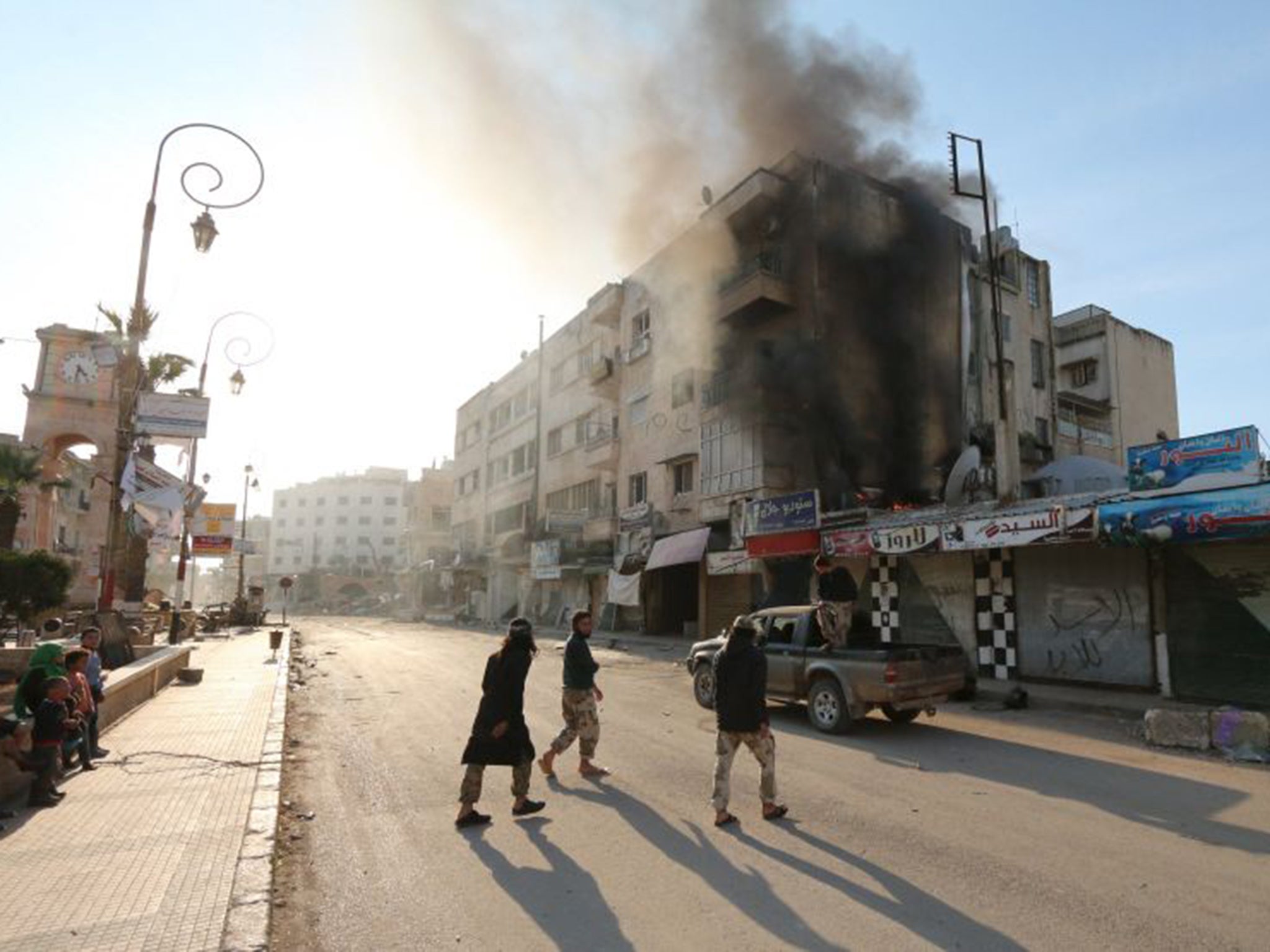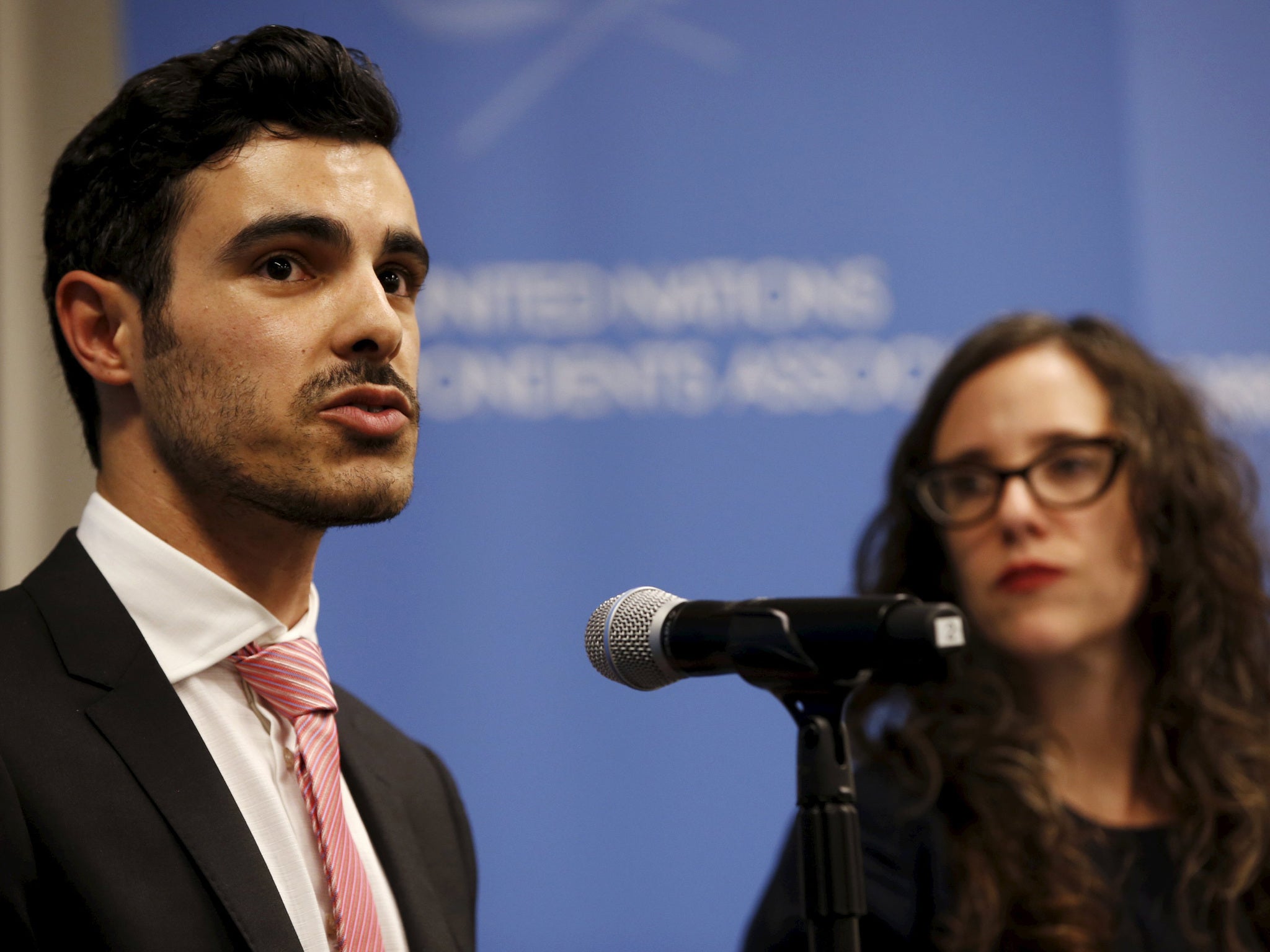'I was sure I’d be raped or killed. I was terrified': My life as a gay Syrian refugee who had to flee Isis
I first escaped to Turkey, but I wasn't even safe there – a childhood friend who had joined Isis threatened to kill me through a mutual friend

Your support helps us to tell the story
From reproductive rights to climate change to Big Tech, The Independent is on the ground when the story is developing. Whether it's investigating the financials of Elon Musk's pro-Trump PAC or producing our latest documentary, 'The A Word', which shines a light on the American women fighting for reproductive rights, we know how important it is to parse out the facts from the messaging.
At such a critical moment in US history, we need reporters on the ground. Your donation allows us to keep sending journalists to speak to both sides of the story.
The Independent is trusted by Americans across the entire political spectrum. And unlike many other quality news outlets, we choose not to lock Americans out of our reporting and analysis with paywalls. We believe quality journalism should be available to everyone, paid for by those who can afford it.
Your support makes all the difference.Growing up in my small city Idlib, Syria, I always knew I was different. I didn’t know what the difference was or what it was called, but I knew I had a secret to guard. That was a decade ago. Even in my worst nightmare, I didn’t dream that one day my beautiful country would implode. And I couldn’t possibly imagine that one day I would address the UN Security Council on behalf of all refugees including LGBT people like me.
Once my family and community in Idlib found out that I was gay, they confirmed my worst fears. I was “abnormal” and “sick.” Most of them believed – and probably still do – that gay people like me should be hospitalized, imprisoned and even killed. I felt desperately alone.
The internet saved me. I was hungry for information about who I was, and I learned there were others like me who were able to live happily – with careers, travel, and even love. Many were free to tell the truth about who they are.
When I was 15, before I came to terms with my identity, my parents suspected something was “wrong” with me and sent me to a therapist. Breaching rules of confidentiality, he told them I was gay.
From that time, I became a prisoner in my home and my town. My father watched my every move. Authorities of the Syrian government and Jabhat al Nusra, a branch of al-Qaeda, raided cafes and parks where LGBT people secretly gathered. Militants promised the townspeople to cleanse our town of gender nonconforming people. Many people were arrested and tortured. Some were never seen again.
Then I became a target of the militants. In 2012, I was on a bus heading to university. We were stopped. The young people, including me, were taken to a remote house where we were all physically assaulted and harassed. The militants took special notice of me. They called me “sissy,” “faggot,” and other insulting Arabic epithets. I was sure I’d be raped or killed. I was terrified. In the Idlib of 2012, there was no law — only people with guns. Miraculously, they let me go.
The terror followed me home, where my father and I had our last fight. The scar on my chin is a constant reminder of his violent reaction to my being different.
My only hope was to flee. I escaped first to Lebanon and then to Turkey, where I lived for three years and began to advocate for other LGBT people and refugees like myself. I co-founded a group, LGBT Arabi, to bring LGBT refugees and non-refugees together. I wrote a blog about LGBT rights.
By 2014, Isis had taken much of Syria and was broadcasting its execution of gay people. I was not safe even in Turkey, as a childhood friend who had joined Isis threatened to kill me through a mutual friend.
It was during my time in Turkey that I found ORAM - the Organization for Refuge, Asylum and Migration. Through ORAM, I understood that my struggle and that of my compatriots was part of a largely unseen global phenomenon of LGBT people escaping extreme persecution and hatred – often in silence and shame.
Three months ago, I became one of the lucky few resettled to freedom in the United States. I now continue to advocate through ORAM in San Francisco for all vulnerable refugees.

Last week I had the extraordinary opportunity to tell my story to the United Nations Security Council. I was speaking for all vulnerable refugees – LGBT people, children, the elderly and frail and so many others when I urged all nations of conscience to open their doors. It is my hope that if enough concerned citizens speak out, more LGBT refugees will reach freedom.
These vulnerable refugees have so much to give the world, but time is running out. They need all nations of conscience to open their doors as wide as they can and protect them.
Subhi Nahas is an advocate for LGBT refugees. He spoke before the first-ever forum at the United Nations Security Council devoted to LGBT rights. He is a system administrator at ORAM – Organization for Refuge, Asylum, and Migration in San Francisco, US.
Join our commenting forum
Join thought-provoking conversations, follow other Independent readers and see their replies
Comments